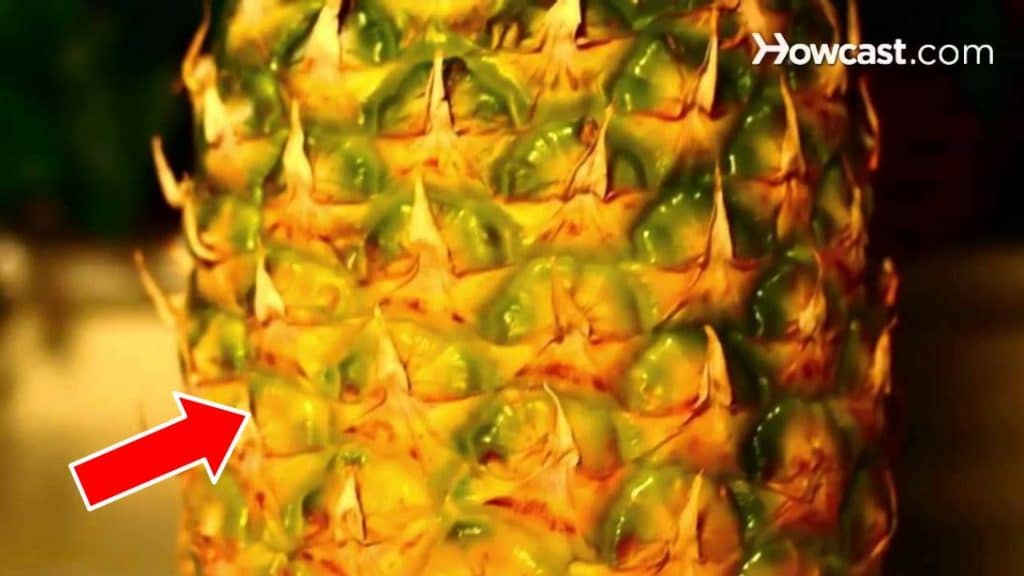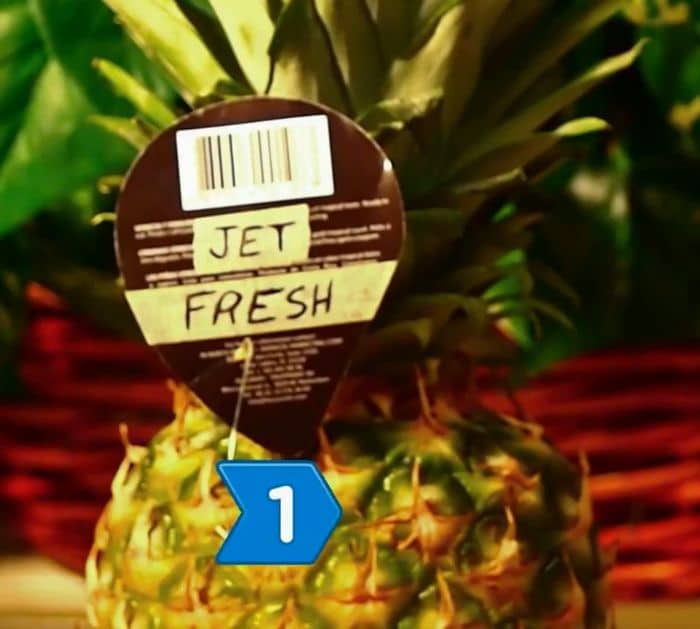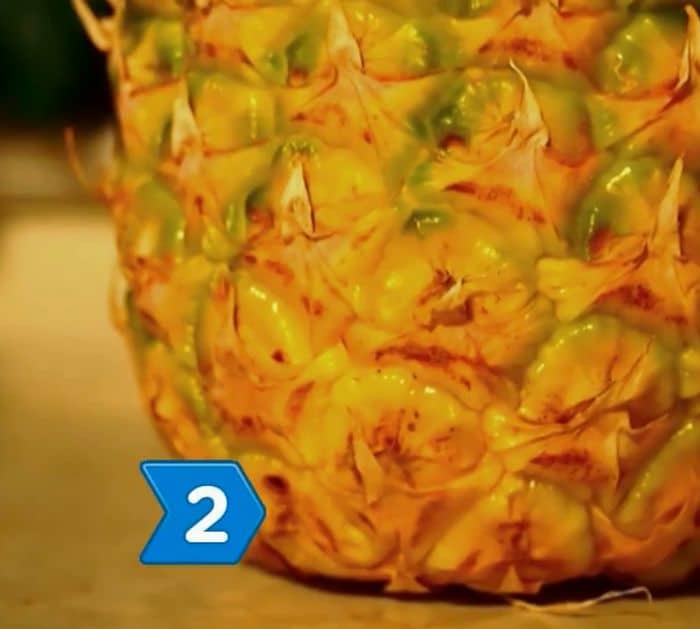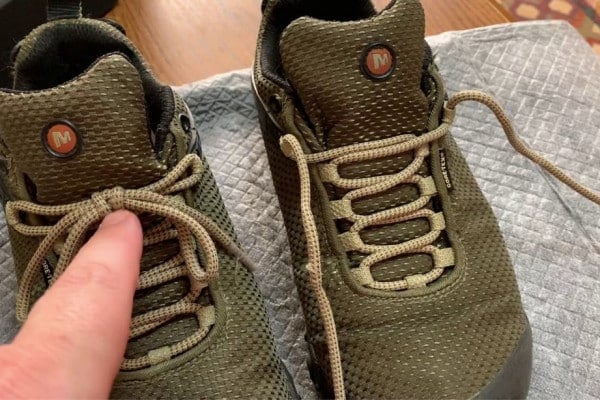
If you love pineapples, make sure to buy them during their harvest season. They are in season from March until July. Throughout these months, you will find the sweetest and juiciest ones. But you can still get pineapples all year round in grocery stores due to global trade. If you are planning to buy one right now, check out these tips by Howcast. They will teach you different ways to tell if a pineapple is ripe.
RELATED: No-Bake Pineapple Pie Recipe
Pineapples always remind me of summer and vacation. They have a sweet and tart flavor, making them one of the best ingredients to add to your desserts. Here are some pineapple-flavored desserts you might want to try: The Easiest Pineapple Upside-Down Cake Recipe, Soft Pineapple Cookies Recipe, Peach Cake with Pineapple Surprise
How to Tell If a Pineapple Is Ripe
1 – Look at the labels
If you do not live in the Hawaiian tropics, look for pineapples with labels or tags that identify them as jets or jet fresh. Pineapples do not get any riper than when they are harvested and are subject to bruises and rot during transit. The freshest ones are flown by jet to their destinations.

2 – Color
Look for a bright gold color on the skin’s eyes around the base of the pineapple. Some pineapple may be green, but it is also possible for a green pineapple to not be ripe. If it has a reddish bronze color, it is over-ripe.
The ripest part is the stem end. The higher up the pineapple, the yellow color goes, the more even the flavor will be.

3 – Appearance
If the skin is wrinkled, it means it is overripe.
4 – Smell
Smell the pineapple at its base. It should have a slight, pleasant pineapple aroma. if it smells of vinegar or acetone, it is beginning to rot.
5 – Feel the skin
If a pineapple is ripe, the skin should be firm and slightly yielding. If it’s mushy, it means it’s deteriorating.
6 – Signs of deterioration
Do not buy pineapples that have leakage, mold, cracks, gumminess, and brown, withered leaves.





